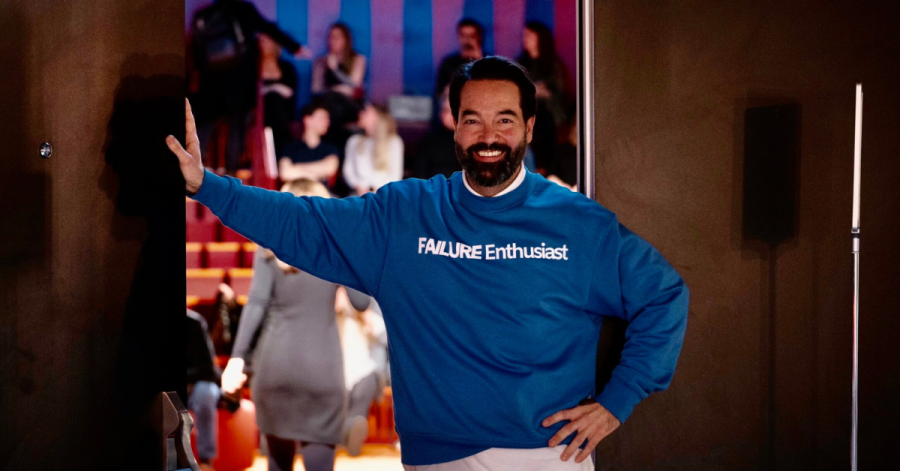99% of startups fail. How many times have you heard that line?
Probably too many to count. We know the statistics behind might not be representative. We also know that there are certainly a lot of obstacles, privileges, and a few sprinkles of luck that play out to decide whether that particularly talkative grad student will push his cutting-edge solution to the market.
What we don’t know, or usually tend to forget, is how something failed. The whys are precise, usually summed up in a few words: poor product-market fit, inadequate financial planning, slow customer acquisition, overhiring, founding team issues… They easily get the picture across. But they don’t tell the story of how that particular thing became the unavoidable bullet for the business.
So, even though we’ve heard that 99% of startups fail, are we really grasping the full scope of that? Failure is a primary building block of every startup ecosystem, and yet we often overlook the opportunity to speak in-depth about it.
Facilitating discussions about how something failed and what everyone can learn from it is a life mission of Dejan Stojanović.
What do you know about failure culture?
Dejan Stojanović is a serial entrepreneur, speaker, and a coach – who, while founding his own startup encountered a very strange fear among Austrian stakeholders of taking risks, failing, and collaborating. This motivated him to bring the first Fuckup Nights in Austria. “Fuckup Nights is a global movement that started in Mexico, driven by the idea of normalizing failure and breaking the stigma around it. When I first encountered it, something clicked. Not just as an event, but as a philosophy,” explains Dejan. With his team, he brought it to Austria early on and helped spread the idea across Europe.
Today, many Fuckup Nights City chapters are independently run by incredible local teams worldwide. “It’s a global patchwork of people who believe in honesty, humility, and the power of stories”, he adds. So far, the movement has reached 300 cities in 90 countries and thousands of people. In CEE, Fuckup Nights were hosted in numerous cities (fun fact: most of them in Bosnia & Herzegovina). Local teams also organized events in Bulgaria, Croatia, the Czech Republic, Hungary, Poland, Romania, Serbia, Slovenia, Albania, North Macedonia, Kosovo and Ukraine. Slovakia and Montenegro still not taken if anyone’s interested!
Talks about failures weren’t enough for Dejan, though. He wanted to go beyond sharing stories and help people break free from the paradigms that limit their lives. Thus, Dejan and his team established The Failure Institute. Still rooted in authentic personal stories, they create experiences, content, and community for top companies and organizations around the world to drive a culture shift around failure. Ultimately, helping people be their truest selves both at work and at home.
From law school graduate to entrepreneur…
Dejan’s journey started at law school, but even with Master’s degree in his hands, his legs wanted to venture elsewhere. Around the time Groupon was taking off, he and couple of colleagues saw how technology could mobilize the masses. “At the same time, we noticed how broken the process of buying a brand-new car was, and sadly, still is,” he reflects. “So we thought: what if we take the concept of group discounts, usually reserved for corporations, and offer it to individuals?”
They envisioned how to leverage collective buying power to negotiate better, fairer, and more transparent prices in the automotive space. The idea got them so hooked, leaving the safe corporate world behind didn’t feel like a leap, but momentum, points Dejan.
“We were passionate about what we were building. And honestly, I didn’t want to look back one day and ask myself: What if?”
In spite, or rather, thanks to that startup journey that ended in failure, Dejan grew through the experience. That impulse to build momentum instead of resting in comfort is core to his mission today, advocating for a society that celebrates courageous risk-takers, not punishes them.
Every Fuckup Night starts with a room full of strangers
Finding out about people’s mistakes and failures is a skill of its own – you have to make a safe space so people can be vulnerable and not feel judged. This is his favorite part of curating a Fuckup Night, says Dejan: “Whether it’s public or internal at a company. You’re not just organizing an event, you’re creating an atmosphere. You’re building trust from scratch.”
What does it take to be good at facilitating that kind of vulnerable and authentic stories: a special intuition, good listening skills, or asking the right questions? Dejan believes you need curiosity, respect, and a whole lot of humble appreciation.
“In one-on-one conversations, it’s about listening, reflecting back what they’re saying, and helping them see the gold in their own journey.”
“People don’t need to justify themselves! They need to feel seen and valued. That’s where the magic happens and when real stories emerge.”
He’s way and practice definitely proved its worth. From the first event in Vienna 11 years ago to sold‑out shows and waitlists. And yet, the magic remains constant:
“The hunger for failure stories has exploded; in startups, in corporates, and among the general public. My Fuckup Nights Vienna sells out in under an hour. We now have a waitlist of people who want to speak.
But what I love most is this: every Fuckup Night starts with a room full of strangers. And it ends with people hugging, laughing, and realizing they’re not alone. That’s what real community looks like.”
Founders’ Failure No. 1
Discussing failure is an important feat, so far, we can all agree on that. But if we look at who might need this particulary, the compass needle points at Europe, and I would dare say CEE region especially. I wholeheartedly agree with Dejan’s observation he shared: “In many European cultures, we still judge, blame, and isolate people who fail.”
“It’s a society problem! (…) We tie success to perfection, and failure to shame. In contrast, cultures that wear failure as a badge of honor (where mistakes are seen as part of the journey) move faster, iterate more, and often innovate more freely. I’d say fear of failure isn’t the issue. Fear of being seen failing is.”
Many impactful stories were shared at Fuckup Nights over the decade, so I was curious to find out which one stood out the most to Dejan. “This is always tricky,” he explains, “because it’s always the latest ones that hit hardest. They’re fresh, emotional, raw.” However, he gives a pattern to paint a picture:
“When founders fall in love with their solution, rather than the problem, failure is almost guaranteed. That realization has stuck with me. It’s one of those truths you need to feel, not just understand.”
Founders, Dejan notes, walk a paradoxical tightrope: “They need tunnel vision to build something from nothing, but that same tunnel vision can blind them to early warning signs.” That is why in his conversations, he creates a space where defensiveness falls away: “If it’s too fresh, people either defend or avoid the topic. But once they feel they’re not being judged, they usually open up, and that’s when real learning happens.”
It’s less interrogation and more guided discovery — asking founders to reflect, not defend.
Every story worth sharing
By the end of my questions, I wondered if every failure is worth talking about. Dejan believes “that every failure has a story and that story is worth sharing.” However, he points it’s not the size of the failure, but the story’s integrity that he is checking in before deciding on which will have the night’s spotlight.
“What I mostly look for is ownership. Does the speaker own the failure, take responsibility, and show what they’ve learned? Or do they just blame others?”
Listening about other people failures is ideal if you can also learn from them, before experiencing it yourself. That is why I will conclude this interview with Dejan’s reflection on how this all affected him. Did his way of demystifying failures influenced how he approaches life and people in general?
“Absolutely. I think it’s made me more open, more patient, and more generous. When someone shares a new idea with me, I try to help: with knowledge, contacts, maybe even money. Or, at the very least, encouragement and good vibes. Sometimes just a few nice words can move mountains.
And if I can’t help, I still cheer them on. I’d rather see someone try and stumble than sit back and wonder what if. Failure isn’t the goal but the process of trying, learning, and growing is what matters.
I’d love to see a world where we give each other more room to fail.”







